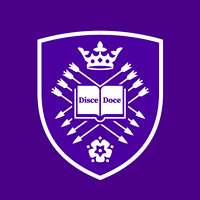fees waived
Physics and Astrophysics, MPhys (Hons), with industry placement
The University of Sheffield, United Kingdom
Subject ranking
UK / ARWU 9th
UK / ARWU 9th
UK / ARWU 12th
Costs
food & rentS$16.6K / year
Entry requirements
Scholarships
More than 50 available
More than 50 available
Unlimited quantity
Unlimited quantity
Limited quantity
Information
Code
Code
Intakes
Website (External)
Programmes
Information
Duration
2029
On this course, you’ll build up skills and experience on a work placement, which you can apply to the final years of your degree and a career in research. Placement opportunities for our astrophysics students include the Isaac Newton Group of Telescopes in the Canary Islands and the Thai National Observatory.When you’re in Sheffield, you’ll spend half your time studying astrophysics modules, as our degree programme has more astrophysics content than most. There are two telescopes on the roof of our building, which you’ll be trained to use from your first year. We also run a telescope on La Palma in the Canary Islands, which students use during our annual field trip. At the start of your course, in lectures and lab classes, you’ll cover the essential physics behind everything else you’ll study: heat, motion, electricity, magnetism and quantum mechanics. You’ll also begin studying the fundamentals of astronomy and astrophysics with modules that cover our solar system, stars, galaxies and basic cosmology. There are practical sessions using our telescopes and, in programming classes, you can learn skills that are essential to modern astrophysics and valuable in many graduate careers, from data science to computer game design.You’ll explore essential physics in even more depth in your second year, and continue to specialise in astrophysics with modules on the structure and evolution of stars and galaxies. You’ll do more practical work with our telescopes and continue to develop your programming skills. Your third year will be your placement year. When you return for your fourth year, you can branch out into lots of different areas and complete your own research project in astrophysics. Your core modules will cover topics like cosmology and stellar atmospheres. Optional modules include topics such as dark matter and nuclear astrophysics.A variety of optional modules are also available in your final year, when you’ll be working on a major research project. You’ll choose a research topic in astrophysics and work closely with a member of academic staff who is an expert in the area you want to explore. The project takes up around half of your final year and can lead to a publication in a scientific journal.Accredited by the Institute of Physics (IOP) for the purpose of fully meeting the educational requirement for Chartered Physicist.
A local representative of The University of Sheffield in Singapore is available online to assist you with enquiries about this course.

